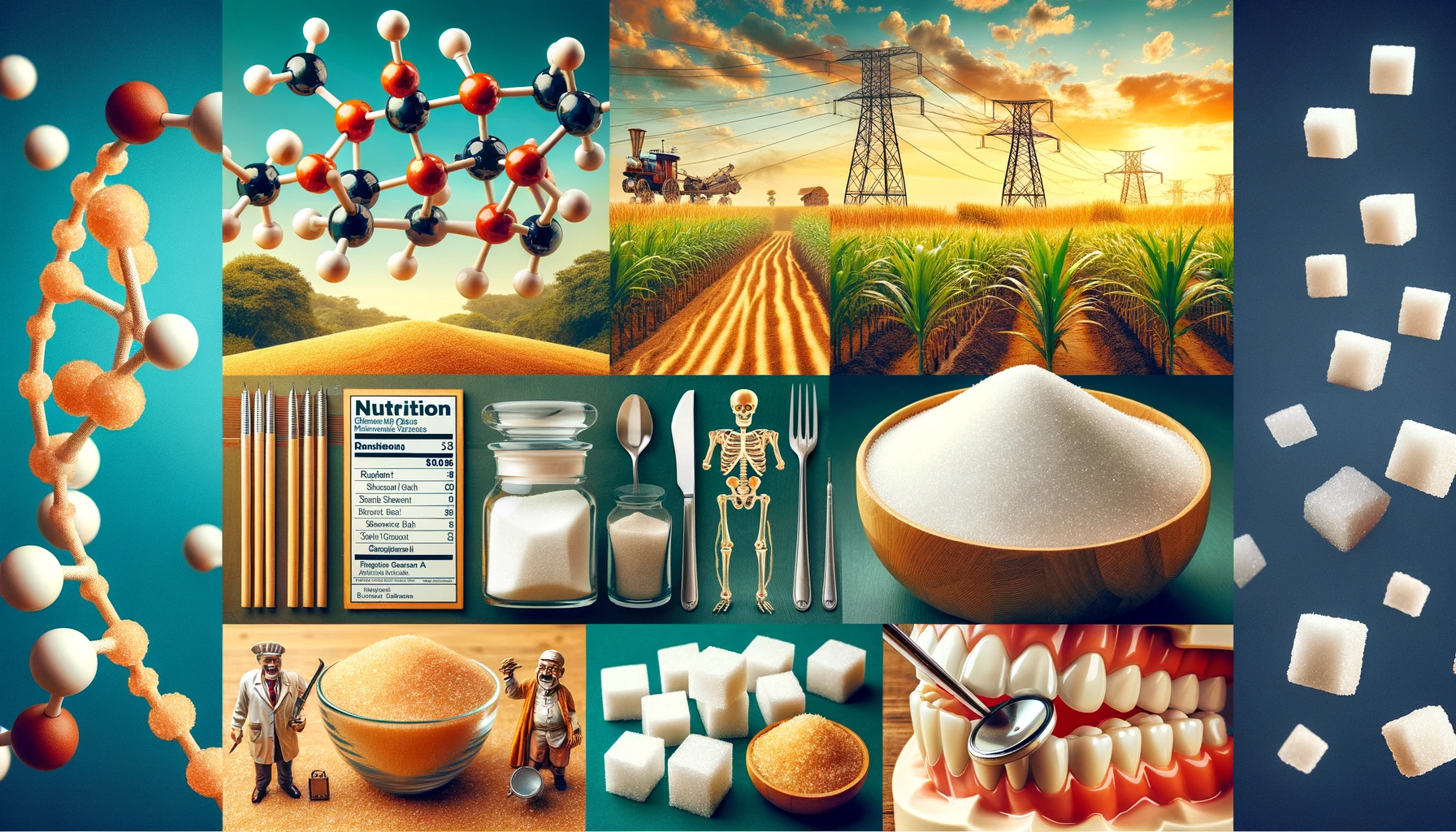In today’s health-conscious world, the debate between natural and artificial sweeteners has gained significant attention. As people strive to make healthier choices in their diets, it’s essential to understand the ingredients behind these sweeteners and their potential impact on health. In this article, we’ll delve into the world of sweeteners, exploring the differences between natural and artificial options and shedding light on the ingredients you need to know about.
Understanding Sweeteners
Sweeteners 101: A Brief Overview
Before we dive into the ingredients, let’s establish a foundational understanding of sweeteners.
- What are Sweeteners? Sweeteners are substances used to enhance the taste of food and beverages, making them sweet. They are commonly added to a wide range of products, including soft drinks, desserts, and even savory dishes.
- Why Use Sweeteners? Sweeteners are used for various reasons, such as enhancing flavor, reducing calories, and catering to dietary restrictions like diabetes.
Now that we have a basic understanding, let’s explore the two primary categories of sweeteners: natural and artificial.
Natural Sweeteners: Nature’s Sweet Gifts
Nature’s Bounty: A Look at Natural Sweeteners
Natural sweeteners are derived from plants or other natural sources and have been used for centuries to add sweetness to food and drinks.
- Honey Honey is a sweet, viscous liquid produced by bees from nectar. It contains natural sugars like glucose and fructose, along with antioxidants and enzymes that offer potential health benefits.
- Maple Syrup Maple syrup is a delicious natural sweetener extracted from the sap of maple trees. It’s known for its unique flavor and contains essential minerals like manganese and zinc.
- Stevia Stevia is a calorie-free sweetener derived from the leaves of the stevia plant. It has gained popularity as a sugar substitute for those looking to reduce their sugar intake.
Artificial Sweeteners: The Laboratory Creations
Unveiling Artificial Sweeteners
Artificial sweeteners are synthetic compounds engineered to mimic the taste of sugar without the calories.
- Aspartame Aspartame is a widely used artificial sweetener found in numerous sugar-free products. It is composed of two amino acids, aspartic acid, and phenylalanine, and is known for its sweet taste.
- Sucralose Sucralose is an artificial sweetener made by chlorinating sucrose. It is heat-stable and suitable for cooking and baking, making it a versatile sugar substitute.
- Saccharin Saccharin is one of the oldest artificial sweeteners, discovered in the late 19th century. It has a long history of safe consumption and is often used in sugar-free drinks and tabletop sweeteners.
Ingredients in Sweeteners: What’s Inside?
Now, let’s take a closer look at the key ingredients found in both natural and artificial sweeteners.
Natural Sweetener Ingredients
- Honey Ingredients Honey primarily contains natural sugars (glucose and fructose), water, and small amounts of vitamins, minerals, and antioxidants.
- Maple Syrup Ingredients Maple syrup comprises mainly sucrose, water, and essential minerals such as manganese, zinc, and calcium.
- Stevia Ingredients Steviol glycosides are the active compounds in stevia responsible for its sweetness. These glycosides are extracted and purified to create the sweetener.
Artificial Sweetener Ingredients
- Aspartame Ingredients Aspartame consists of aspartic acid, phenylalanine, and methanol. Phenylalanine is of particular concern for individuals with phenylketonuria (PKU), as they cannot metabolize it properly.
- Sucralose Ingredients Sucralose is derived from sucrose (table sugar) through a chemical process that replaces three hydrogen-oxygen groups with chlorine atoms.
- Saccharin Ingredients Saccharin is a sulfonamide sweetener derived from the chemical compound o-sulfobenzoic acid imide. It is non-caloric and intensely sweet.
Making Informed Choices
Choosing the Right Sweetener
When it comes to selecting sweeteners, your choice should align with your dietary preferences, health goals, and any specific dietary restrictions you may have. Consider the following factors:
- Caloric Content: Natural sweeteners like honey and maple syrup contain calories, while artificial sweeteners are typically low in calories or calorie-free.
- Taste and Flavor: Natural sweeteners often have distinct flavors, while artificial sweeteners aim to closely mimic the taste of sugar.
- Health Considerations: Individuals with PKU should avoid aspartame, and those looking for calorie-free options may prefer artificial sweeteners.
- Cooking and Baking: Consider the suitability of sweeteners for cooking and baking. Some artificial sweeteners like sucralose are heat-stable and work well in recipes.
Conclusion: Sweetening the Deal
In the ongoing natural vs. artificial sweeteners debate, understanding the ingredients is crucial for making informed choices. Natural sweeteners like honey, maple syrup, and stevia offer unique flavors and potential health benefits, while artificial sweeteners like aspartame, sucralose, and saccharin provide calorie-free sweetness.
Ultimately, the choice between natural and artificial sweeteners depends on your dietary needs, taste preferences, and health considerations. By staying informed about the ingredients and their implications, you can sweeten your life in a way that aligns with your overall wellness goals.
